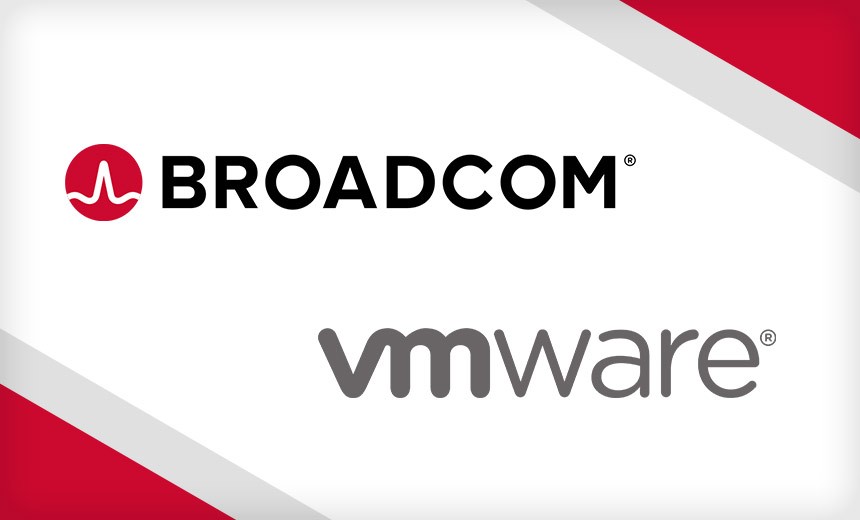Broadcom's VMware Acquisition: AT&T Highlights A Staggering 1,050% Price Hike

Table of Contents
The Staggering 1,050% Price Increase: A Deep Dive into AT&T's Experience
AT&T's VMware Licensing Costs Before and After the Acquisition:
While the exact figures remain undisclosed by AT&T for competitive reasons, reports indicate a jump from an undisclosed base cost to a figure representing a 1050% increase. This staggering increase points to a significant shift in VMware's pricing strategy post-acquisition. Several factors likely contributed to this massive difference:
- Bundled Services: Previously separate VMware services may now be bundled into a single, significantly more expensive package.
- New Contract Terms: The acquisition may have allowed Broadcom to renegotiate contracts, imposing new, less favorable terms for existing clients like AT&T.
- Market Dynamics Post-Acquisition: Broadcom's acquisition may have given them increased market power, allowing them to raise prices with less fear of competition.
The specifics of AT&T's previous contract and the new terms remain unclear, highlighting the need for businesses to carefully scrutinize their own VMware agreements.
Impact on AT&T's Business Operations and Budget:
A 1,050% price hike is not merely an accounting anomaly; it has significant ramifications for AT&T's operational efficiency and profitability. This unexpected cost increase forces the company to:
- Re-evaluate IT budgets: Significant budget reallocations are necessary to accommodate the inflated VMware licensing costs.
- Explore cost-cutting measures: This could involve streamlining operations, reducing staff, or delaying other crucial investments.
- Negotiate with Broadcom: AT&T may be seeking renegotiation or exploring legal avenues to challenge the price increase.
The incident underscores the vulnerability of businesses heavily reliant on a single vendor's technology.
AT&T's Response to the Price Hike:
While AT&T has not publicly commented extensively on the specifics of the price increase, the sheer magnitude of the hike suggests a significant internal response. Possible actions include:
- Internal cost analysis: Thorough review of VMware usage and potential alternatives.
- Contractual review: Scrutiny of the terms and conditions of the new agreement.
- Legal consultation: Exploration of legal options to challenge the price increase.
The situation serves as a case study for other VMware clients, emphasizing the importance of proactive contract management.
Broader Implications of the Broadcom-VMware Merger on Pricing and Competition
Antitrust Concerns and Regulatory Scrutiny:
The Broadcom-VMware merger has understandably raised significant antitrust concerns. Regulators are scrutinizing the deal for its potential to stifle competition within the virtualization and data center markets. The price hike experienced by AT&T fuels these concerns, suggesting:
- Reduced competition: The merger might lead to reduced competition, allowing Broadcom to dictate prices.
- Increased market power: Broadcom's acquisition grants it significant market power, potentially leading to exploitation of clients.
- Ongoing investigations: Regulatory bodies may launch further investigations in light of AT&T's experience.
The Future of VMware Licensing and Pricing:
AT&T's experience is a harbinger of what other VMware clients might face. This raises concerns about:
- Future price increases: Similar price hikes for other businesses using VMware solutions are a very real possibility.
- Market instability: The price increases could destabilize the software licensing market, leading to uncertainty.
- Long-term impacts: Businesses reliant on VMware need to prepare for potentially significant cost increases.
Alternatives to VMware in the Post-Acquisition Landscape:
The dramatic price hike highlights the need for businesses to explore alternative virtualization and cloud computing platforms. Options include:
- Open-source solutions: Open-source virtualization technologies offer a cost-effective alternative.
- Competitor platforms: Other virtualization platforms offer comparable functionalities.
- Cloud migration: Moving to cloud-based virtualization solutions can offer flexibility and cost savings.
Conclusion: Navigating the Post-Acquisition VMware Landscape
AT&T's staggering 1,050% VMware price hike following Broadcom's acquisition underscores the potential risks for businesses reliant on VMware products. This incident should serve as a wake-up call. It's crucial to:
- Evaluate your VMware licensing costs: Carefully review your current contracts and understand the potential for future price increases.
- Consider alternative virtualization solutions: Explore open-source options or competitor platforms to reduce your dependence on VMware.
- Understand the implications of the Broadcom VMware acquisition: Stay informed about regulatory developments and potential legal challenges. Don't wait for a similar price shock to hit your bottom line; act now to secure your organization's future.

Featured Posts
-
 Kalinskaya Upsets Keys In Charleston Quarterfinal Clash
Apr 27, 2025
Kalinskaya Upsets Keys In Charleston Quarterfinal Clash
Apr 27, 2025 -
 Andrzej Zulawskis Possession Analyzing The Roles Of Sister Faith And Sister Chance As Discussed On The Lady Killers Podcast
Apr 27, 2025
Andrzej Zulawskis Possession Analyzing The Roles Of Sister Faith And Sister Chance As Discussed On The Lady Killers Podcast
Apr 27, 2025 -
 Indian Wells 2024 Caida Inesperada De Una Favorita
Apr 27, 2025
Indian Wells 2024 Caida Inesperada De Una Favorita
Apr 27, 2025 -
 Packers 2025 International Game Possibilities Two Chances To Play Abroad
Apr 27, 2025
Packers 2025 International Game Possibilities Two Chances To Play Abroad
Apr 27, 2025 -
 Power Finance Corporation Pfc Dividend Update 4th Cash Reward For Fy 25
Apr 27, 2025
Power Finance Corporation Pfc Dividend Update 4th Cash Reward For Fy 25
Apr 27, 2025
